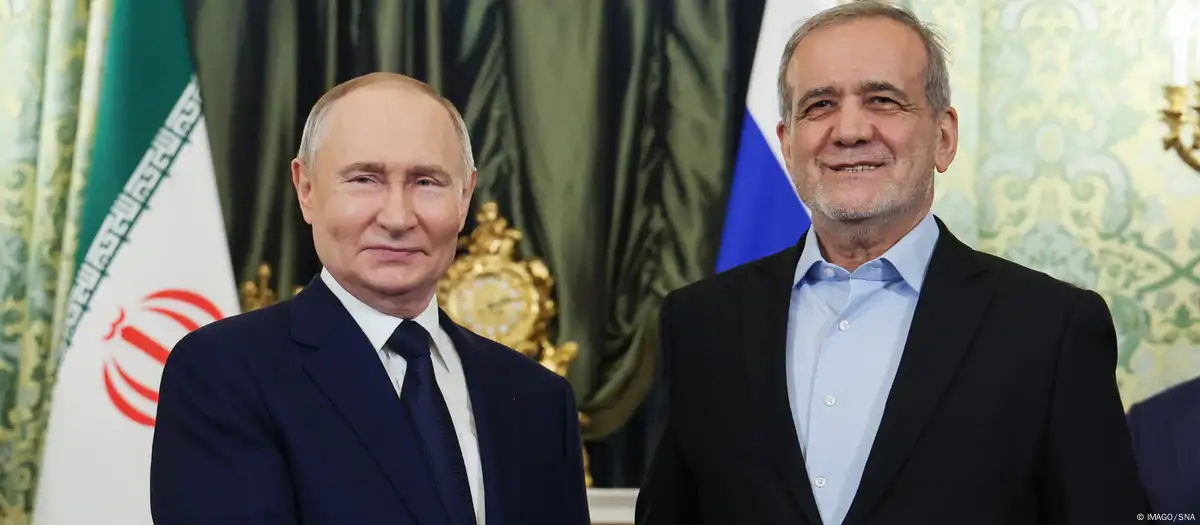
In a dramatic twist to the escalating Israel-Iran conflict, Russia has declined Iran’s request for military support
Strategic Silence: Russia’s Calculated Refusal to Arm Iran
Kremlin Cold Shoulder – As the Middle East teeters on the edge of a broader war, Russia has made a deliberate and telling choice: it will not provide weapons to Iran in its ongoing conflict with Israel. This decision comes despite the recent ratification of a Treaty on Comprehensive Strategic Partnership between Moscow and Tehran, a pact many assumed would translate into military backing.
Table of Contents
The Kremlin’s response has been measured but firm. While Russian President Vladimir Putin has condemned Israel’s airstrikes on Iran as violations of international law, he has stopped short of offering any tangible military aid. Instead, Moscow has emphasized the need for diplomatic resolution, urging all parties to avoid further escalation.
This restraint is not without precedent. Russia has long walked a tightrope in the Middle East, maintaining strong ties with both Iran and Israel. While Iran has supplied Russia with drones and ballistic missiles for use in Ukraine, the Kremlin appears unwilling to risk its broader regional interests by taking sides in a direct military confrontation.
Balancing Act: Why Russia Won’t Cross the Line
Russia’s refusal to arm Iran is rooted in strategic pragmatism. Analysts suggest that Moscow is wary of triggering a regional conflagration that could spiral beyond control. With its military already stretched in Ukraine and its economy under Western sanctions, Russia is unlikely to open a second front, especially one that could alienate Israel, a country with which it shares complex but functional ties.
Moreover, Russia’s presence in Syria, where it has coordinated with both Iranian and Israeli forces—adds another layer of complexity. Any overt support for Iran could jeopardize Russia’s delicate military equilibrium in the region.
Iran, for its part, had hoped for more. Reports indicate that Tehran sought advanced aircraft, missile systems, and satellite intelligence from Moscow. But the Kremlin has remained cautious, offering only verbal condemnation of Israeli strikes and reaffirming its commitment to non-proliferation and diplomacy.
This decision underscores a broader truth: strategic partnerships do not guarantee military intervention. Even as Iran ratified its defense pact with Russia, the Kremlin made clear that it would not be drawn into a war that could destabilize the entire Middle East.
The Bigger Picture: What This Means for Global Power Dynamics
Russia’s stance sends a powerful message, not just to Iran, but to the world. It highlights the limits of alliances in an era of shifting geopolitical sands. While Moscow and Tehran may share common adversaries and economic interests, their partnership is transactional, not unconditional.
This episode also reveals the growing isolation of Iran, which now finds itself under siege without the military backing of its most powerful ally. As Israeli strikes continue to target Iranian infrastructure, Tehran’s options appear increasingly constrained.
For Russia, the decision may help preserve its diplomatic credibility in the region. By refusing to escalate the conflict, Moscow positions itself as a potential mediator, one that can engage with both sides without being seen as a direct combatant.
But the risks remain. If the conflict deepens, Russia may be forced to reassess its neutrality, especially if Iran’s retaliatory strikes provoke a broader regional backlash. For now, however, the Kremlin’s message is clear: support in words, not weapons.
Stay updated with the latest news on Rapido Updates. Keep yourself updated with The World, India News, Entertainment, Market, Gadgets, Sports, and many more..